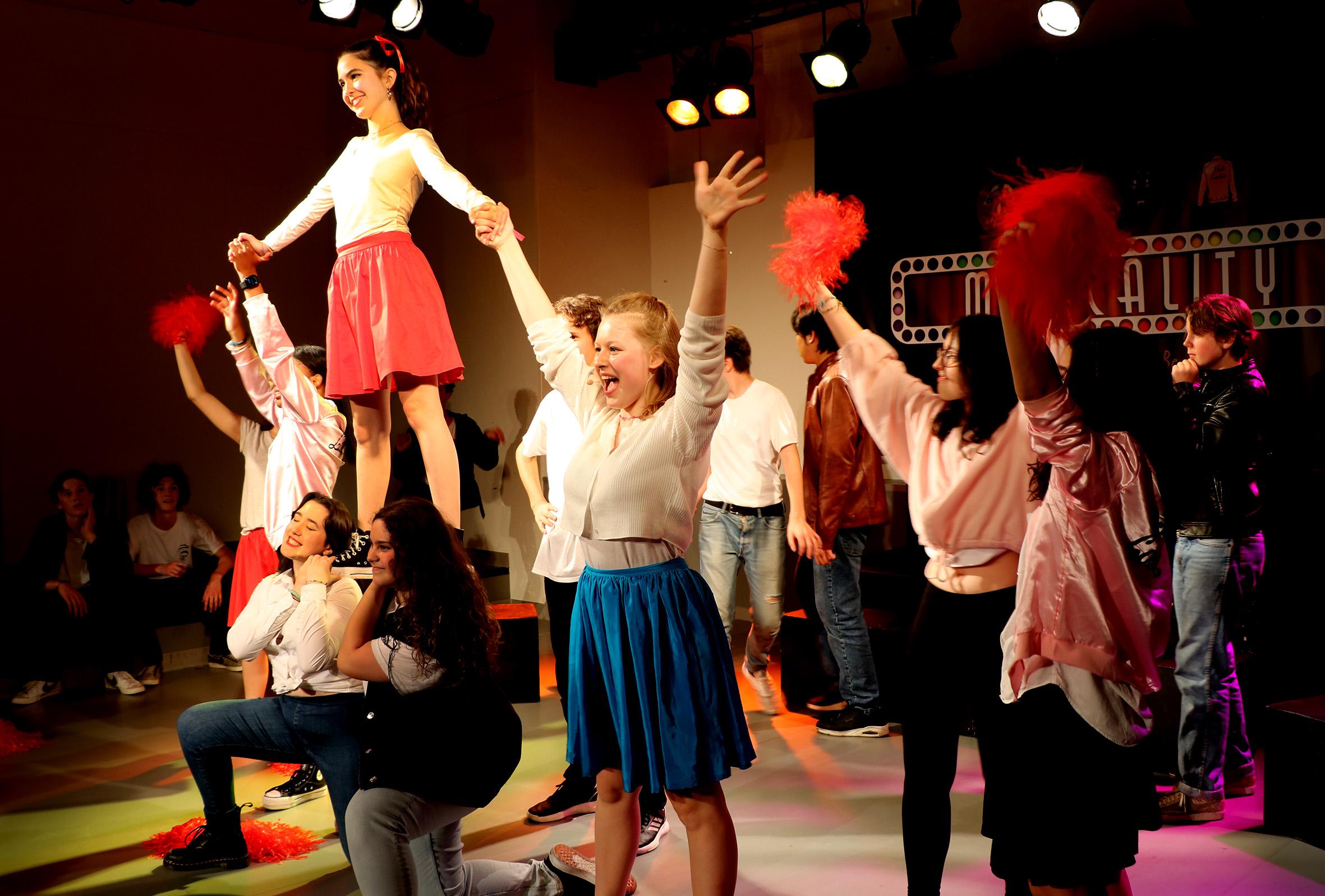
International School of Paris MYP Curriculum Guide 2022-23
The IB Middle Years Programme at ISP............................................................................................................
IB Mission Statement
The MYP Framework
A Concept Driven Curriculum
Global Contexts
The International Baccalaureate Learner Profile...........................................................................................
Approaches to Learning (ATLs)
3
The ISP High Quality Learning Definition 6
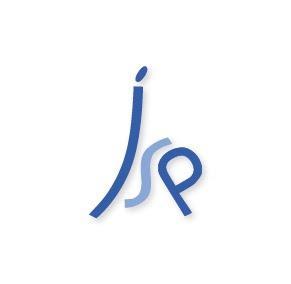
MYP Certificate
Promotion within the MYP
MYP Subjects
Group 1: Language & Literature
Group 2: Language Acquisition
Group 3: Individuals & Societies
Group 4: Sciences
10
10
Group 5: Mathematics................................................................................................................................... 11
Group 7: Physical & Health Education
Group 8: Design
12
12
Language Options 13
Language Profiles
Language Placement
13
13
Moving into the Next Phase or Course 13
School supported Mother Tongue (SSMT) Programme 13
French Enrichment 14
Service as Action (SA)
Personal Project
Home Learning
Student Work
MYP Assessment
MYP
Awarding Grades
15
16
MYP Curriculum Guide 2022 23 2 Contents
3
...................................................................................................................................
3
3
........................................................................................................................................... 4
5
6
............................................................................................................................................... 7
........................................................................................................................... 7
8
...................................................................................................................... 9
........................................................................................................................ 9
....................................................................................................................
..........................................................................................................................................
...........................................................................................................
.............................................................................................................................................
..........................................................................................................................................
.................................................................................................................................
....................................................................................................................................
............................................................................................................................................
17
................................................................................................................................................ 17
........................................................................................................................................... 17
Reports.............................................................................................................................................. 17
18
The IB Middle Years Programme at ISP
IB Mission Statement
“The International Baccalaureate® aims to develop inquiring, knowledgeable and caring young people who help to create a better and more peaceful world through intercultural understanding and respect. [Our] programmes encourage students across the world to become active, compassionate and lifelong learners who understand that other people, with their differences, can also be right.”
The Middle Years Programme (MYP) at ISP is purpose built for our middle school students. It allows them to use big ideas and real world contexts to develop the skills, knowledge and attitudes that are vital for future success in both academic programmes and as global citizens.
To meet the needs of our international community, ISP MYP provides a balanced education, which facilitates geographic and cultural mobility and promotes the concepts of responsibility and international understanding.
The MYP Framework
The Middle Years Programme (MYP) was originally developed by the International Schools Association and then further developed by schools during the early 1990s. The MYP has been taught at ISP since September 2001. The International School of Paris adopted the IB MYP due to the synchronisation with its philosophy and objectives, and also because the MYP:

● is an international program with no bias towards any particular national system;
● is part of the IB, a globally recognized and respected educational organization;
● provides vertical consistency through the IB Diploma in grades 11 and 12 and the PYP in the Primary School;

● is flexible enough to allow ISP to design the curriculum to fit student needs;
● does not prescribe content of subject areas but does provide a framework for their delivery;
● provides assessment, within the IB MYP subjects, which share a common approach by being criterion based and inquiry led;
● has strong interdisciplinary elements;
● supports external evaluation and curriculum development.
A Concept Driven Curriculum
“What matters is not the absorption and regurgitation either of facts or of pre digested interpretations of facts, but the development of powers of the mind or ways of thinking which can be applied to new situations and new presentations of facts as they arise.”
(Alec Peterson, first IB Director General 2003:47)
MYP Curriculum Guide 2022 23 3
A concept is a big idea a principle that is enduring, the significance of which goes beyond aspects such as particular origins, subject matter or place in time. Concepts represent the vehicle for students’ inquiry into issues and ideas of personal, local and global significance, providing the means by which the essence of a subject can be explored.
The MYP identifies concepts into which students must inquire. These concepts ensure the development of a rigorous curriculum and promote a shared community of practice among IB World Schools offering the MYP.

MYP Key Concepts:
A concept based model is used in the MYP because it encourages students to:

● process factual knowledge at a deeper intellectual level as they relate the facts to concepts and essential conceptual understandings;
● create personal relevance, as students relate new knowledge to prior knowledge, and encourage understanding of cultures and environments;
● bring their personal intellect to the study as they use a key concept to personally focus on the unit topic in order to increase motivation for learning;
● increase fluency as students use a common language to articulate their deeper learning;
● achieve higher levels of critical, creative and conceptual thinking as students analyse complex global challenges.
Global Contexts

Learning at ISP aims to support students to understand the complex world. There are many different things that a person needs to understand to understand the world. These things fall into six categories, known as the MYP Global Contexts.
All units of work allow students to explore one of the Global Contexts. This supports students to make worthwhile connections between the real world and
MYP Curriculum Guide 2022 23 4
The International Baccalaureate Learner Profile

The IB learner profile are ten personal attributes valued by IB World Schools. We believe these attributes help our students become responsible members of local, national and global communities. The learner profile is what enables ISP to reach its mission, Educating for Complexity. The attributes of the learner profile permeate teaching and learning and provide a framework for our values.

MYP Curriculum Guide 2022 23 5
Approaches to Learning (ATLs)
It is widely known that the development of transdisciplinary skills is just as important as learning in specific subjects. The transdisciplinary skills that empower students to be successful in school, education and beyond, are known as Approaches to Learning (ATLs). There are five broad categories of skills, which can be broken down into ten more specific categories of ATL skills. Throughout the MYP, students will learn and practice different strategies for developing these skills.
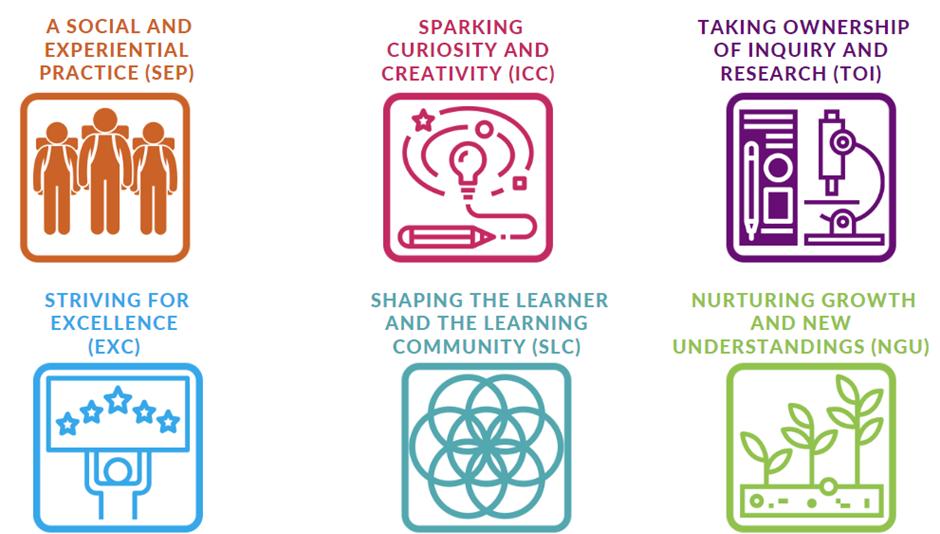
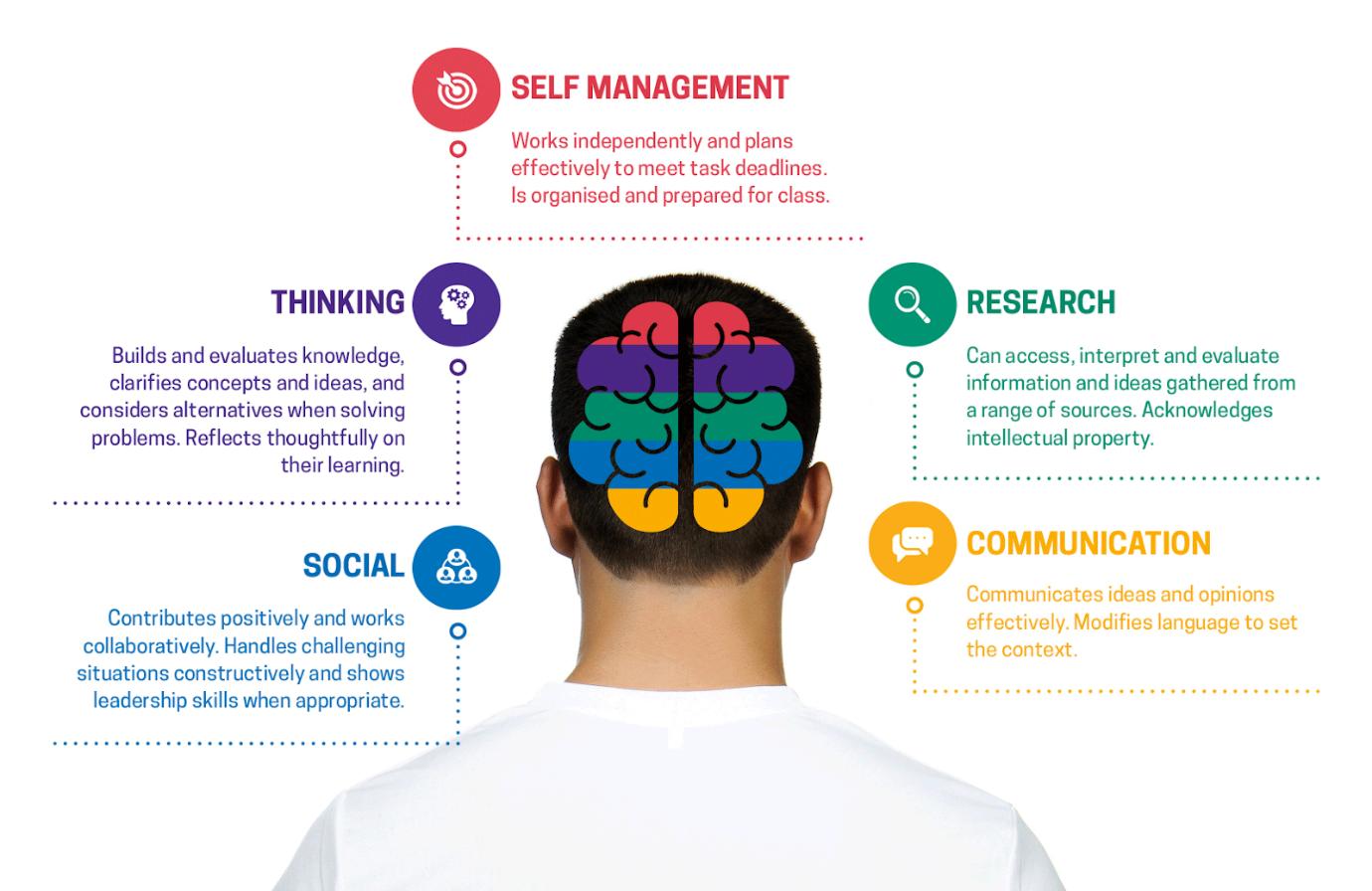
The ISP High Quality Learning Definition
High quality learning is a social and experiential practice. It sparks students’ curiosity and stimulates their natural creativity. It inspires them to strive for excellence, and to take ownership of their own inquiry and research. It shapes the learner and the learning community, nurturing growth and new understanding.

MYP Curriculum Guide 2022 23 6
MYP Certificate
MYP Certificates are awarded at the end of Grade 10. To be awarded the ISP MYP Certificate of Completion, a student must have studied the MYP for the whole of Grade 10 (minimum). The final year report must demonstrate:
● at least a 3/7 in each MYP subject area;
● at least a 3/7 on the Personal Project;
● a minimum total of 36 total points across the 8 MYP Subjects and Personal Project; (Where students study more than 2 Language courses, the highest 2 scores, including at least 1 from Language & Literature, will contribute.)
● completion of ISP's expectations for Service as Action and participation in a Service as Action interview;

● at least one language at Language & Literature level; and,
● minimum 90% attendance.
The requirements for MYP certificate of completion are also the conditions for promotion from Grade 10 (MYP5) to the IB Diploma Programme. In addition, to meet the entry requirements for chosen courses of study in Grade 11, the school advises a student should have:
● a Grade 10 second semester score of 5 or above for each higher level subject
● a Grade 10 second semester score of 4 or above for each standard level subject
Promotion within the MYP
Promotion from each grade is not automatic. To be promoted from within the MYP (grades 6 9), a student’s final report should demonstrate:
● at least a 3/7 in each MYP subject area;
● An average final grade of at least 4 in the MYP subjects;
● completion of ISP's expectations for Service as Action; and,
● minimum 90% attendance.
MYP Curriculum Guide 2022 23 7
MYP Subjects
Our MYP class structure is designed to offer the nurture and care from primary school whilst gently supporting our learners to be able to cope with greater independence and opportunities as they move towards high school.
MYP Years 1 3: Grades 6 8
MYP Year 4: Grade 9
Group 1/2: English Language & Literature or Language Acquisition
Group 1/2: French Language & Literature or Language Acquisition
MYP Year 5: Grade 10
3rd Language Option 1: MYP Language & Literature Japanese, Korean, Spanish or SSMT
Option 2: MYP Language Acquisition Spanish or Chinese Option 3: French Enrichment
Group 3: Individuals & Societies Integrated Humanities
Group 4: Sciences Integrated Sciences
Group 5: Mathematics Mathematics Standard Mathematics or Extended Mathematics
Group 6: The Arts
Integrated Arts: Drama, Media, Music and Visual Art
Integrated Arts: Drama, Media, Music and Visual Art
Art specialisation: Drama or Media or Music or Visual Art
Group 7: Physical & Health Education Physical and Health Education (PHE)
Group 8: Design Product and Digital Design
MYP Core Service as Action
Supporting courses
Personal Project and Service as Action
Personal and Social Education (PSE), Advisory

MYP Curriculum Guide 2022 23 8
Group 1: Language & Literature
English, French, Spanish, Japanese, Korean, or Self Study Mother Tongue (SSMT)
Students must study at least one language at Language & Literature level. Language & Literature is either a student’s mother tongue language or one in which he/she has near native proficiency. It is an academically rigorous study of both language and literature, which aims to equip students with linguistic, analytical and communicative skills.
Main objectives
The study of MYP Language & Literature is to encourage and enable students to:
● use language as a vehicle for thought, creativity, reflection, learning, self expression and social interaction;
● develop critical, creative and personal approaches to studying and analysing literary and non literary works;
● develop a lifelong interest in reading widely and apply language skills in a variety of real life contexts.
Group 2: Language Acquisition
English, French, Spanish, or Chinese
The aims of the study of modern foreign languages are to acquire, firstly, the basis of a means of communication and an understanding of the linguistic, cultural, and social elements of the communities where these languages are spoken. In addition, we aim to develop an appreciation of a variety of literary and non literary texts, thus giving access to multiple sources of information. Finally, it is hoped that this activity will be life long and enjoyable. Teaching and learning in Language Acquisition is organized into six phases. The phases represent a developmental continuum of additional language learning. Students may commence their Language Acquisition course in any phase on the continuum and may exit from any phase on the continuum.
Main objectives
The subject’s objectives, which are achieved at different levels in accordance with the criteria of the students’ placement, are to be able to:
● communicate information, ideas and opinions;
● demonstrate comprehension of these, both orally and in writing;
● identify main ideas and supporting details and draw conclusions in these same ways, using appropriate structures and vocabulary;
● request and provide information in formal and informal exchanges related to the Global Contexts and to cultural and international issues.

MYP Curriculum Guide 2022 23 9
Group 3: Individuals & Societies
Integrated Humanities
The MYP Individuals and Societies subject group is inclusive of disciplines studied under humanities and social sciences. In Individuals and Societies, students have the opportunity to develop the skills needed to make in depth inquiries into historical, geographical, political, social, economic, and cultural factors. Students also explore the potential impact on individuals, societies and the environment, encouraging them to broaden their thinking, and to respect the diversity in the world around them. Individuals and societies also encourages students to develop their critical thinking skills when considering the diversity of human culture, attitudes and beliefs; students discover that both content and methodology can be debatable and controversial.
Main objectives
The aim of MYP Individuals and Societies is to encourage students to:
● gain knowledge and conceptual understanding;
● develop research, analytical and interpretive skills;

● develop and use effective communication skills;
● encourage students to respect and understand the world around them;
● provide a skills base to facilitate further study.
Group 4: Sciences
Integrated Sciences
Science and the scientific method offer a way of learning that contributes to the development of analytical and critical thinking skills. The MYP sciences curriculum explores the connections between science and everyday life. As they investigate real examples of science applications, students will discover the tensions and dependencies between science and morality, ethics, culture, economics, politics, and the environment.
Main objectives
The study of MYP Science is to encourage and enable students to:
● develop inquiring minds and curiosity about science and the natural world;
● acquire knowledge, conceptual understanding and skills to solve problems and make informed decisions in scientific and other contexts;
● develop skills of scientific inquiry to design and carry out scientific investigations and evaluate scientific evidence to draw conclusions;
● communicate scientific ideas, arguments and practical experiences accurately in a variety of ways;
● think analytically, critically and creatively to solve problems, judge arguments and make decisions in scientific and other contexts;
● understand the international nature of science and the interdependence of science, technology and society, including the benefits, limitations and implications imposed by social, economic, political, environmental, cultural and ethical factors.
MYP Curriculum Guide 2022 23 10
Group 5: Mathematics
Mathematics, Extended Mathematics, Standard Mathematics
MYP mathematics provides a framework of concepts and skills organized into the following five branches of mathematics: number; algebra; geometry and trigonometry; statistics and probability; discrete mathematics. Starting in MYP Year 4 (Grade 9), the concepts and skills of the framework for mathematics are organized so that students can work at two levels of ability: Standard Mathem atics and Extended Mathematics. Standard Mathematics aims to give all students a sound knowledge of basic mathematical concepts while allowing them to develop the skills needed to meet the objectives of MYP mathematics. Extended Mathematics consists of the Standard Mathematics framework supplemented by additional concepts and skills. This level provides the foundation for students who wish to pursue further studies in mathematics, for example, Mathematics Higher Level (HL) as part of the IB Diploma Programme.
Main objectives
MYP Mathematics aims to:
● equip all students with the knowledge, understanding and intellectual capabilities to address further courses in mathematics;
● prepare students to use mathematics in their workplace and life in general;
● develop an understanding of the principles and nature of mathematics;
● develop logical, critical and creative thinking;
● advance confidence, perseverance, and independence in mathematical thinking and problem solving;
● develop the ability to reflect critically upon their own work and the work of others.
Group 6: Arts
Drama, Media, Music, Visual Art
The arts are a universal form of human expression and a unique way of knowing that engage us in affective, imaginative and productive activity. Learning through the arts helps us to explore, shape and communicate our sense of identity and understanding of the world. The IB MYP arts value the process of creating artwork as much as the finished product.
Main objectives
Through a study of the different arts disciplines, students should be able to:
● demonstrate knowledge and understanding of the art form studied in relation to societal, cultural, historical and personal contexts;
● demonstrate knowledge and understanding of the elements of the art form studied, including specialized language, concepts and processes;
● communicate a critical understanding of the art form studied in the context of their own artwork;
● develop an idea, theme or personal interpretation to a point of realisation, expressing and communicating their artistic intentions;
● apply skills, techniques and processes to create, perform and/or present art;

● reflect critically on their own artistic development and processes at different stages of their work;
● use feedback to inform their own artistic development and processes;
● demonstrate curiosity, self motivation, initiative and a willingness to take informed risks;
● be receptive to art practices and artworks from various cultures, including their own
MYP Curriculum Guide 2022 23 11
Group 7: Physical & Health Education
Physical & Health Education
Students receive a balanced physical and health education curriculum with opportunities to become multi skilled by experimenting with the main sports groups of cultures around the world. The social aspect of collective sports activities allows students to develop autonomy and responsibility. Students also learn about safety and first aid. Individual sports activities offer students opportunities to strive for their personal best through a thorough understanding of their own limits. Partnered sports activities help students learn to manage their stress and emotions with respect to their physical effort that must be adapted to the environment and sports material. Student learning experiences in the PHE program are diverse and comprehensive, allowing students to attain knowledge and experience within a maximum of environments and situations.
Main objectives
The PHE curriculum aims to:
● use inquiry to explore physical and health education concepts;
● participate effectively in a variety of contexts;
● understand the value of physical activity;
● achieve and maintain a healthy lifestyle;
● collaborate and communicate effectively;

● build positive relationships and demonstrate social responsibility.
Group 8: Design Product and Digital Design
MYP Design covers two areas: digital design and product design. Each year, students complete at least two full design projects, with some shorter, focused tasks. Students learn about the materials and processes we use to shape our world and how we communicate and share ideas, opinions and information. Knowledge of materials is built up as the student progresses through the school, starting with origins and classification then progressing to how man made materials are produced, with special reference to the effects we have on our environment and how we can have a positive effect through our choices.
Main objectives
The study of Design is to encourage and enable students to:
● enjoy the design process, develop an appreciation of its elegance and power;
● develop knowledge, understanding and skills from different disciplines to design and create solutions to problems using the design cycle;
● use and apply technology effectively as a means to access, process and communicate information, model and create solutions and to solve problems;
● develop an appreciation of the impact of design innovations for life, global society and environments;
● develop respect for others’ viewpoints and appreciate alternative solutions to problems.
MYP Curriculum Guide 2022 23 12
Language Options
Language Profiles

Language learning is fundamental to our vision of “Educating for Complexity”.
At ISP, we promote effective communication, development of identity and appreciation of other cultures through language learning. ISP's Language Learning programme seeks to build on and advance our students’ diverse backgrounds and language profiles.
Students study three language subjects.
1: English
2: French
3: World Language Option
To be eligible for the MYP Certificate of Completion, at least one of these must be a Language and Literature course by Grade 10 (strongly recommended by Grade 9).
Language Placement
The department leaders for the languages (English, French and World Languages) work with the MYP teachers to assign students to classes based on their current level of proficiency. New students will have a diagnostic test at the start of the year to form a base line.
Moving in to the Next Phase or Course
Levels of proficiency are categorised according to the IB’s Continuum of language learning. Students progress through “phases” as their language proficiency levels increase, from Phase 1 (Beginner) to Phase 6 (Proficient). Student movement from one phase to the next, or one course to the next, is only possible at reporting times. Teachers will decide in consultation with the Head of Department if a change is appropriate and beneficial for a student. As soon as a student joins a Language & Literature class and demonstrates success at this level over an extended period of time, they will no longer be able to return to a Language Acquisition class for that language. Students exiting the MYP after Grade 10 (MYP5) in a Language & Literature class, and having demonstrated success at this level, will not have access to IB DP (Grade 11) Language B classes. MYP Language & Literature students are expected to enroll in an IB DP Language A class.
School supported Mother Tongue (SSMT) Programme
In addition to the taught languages that the school offers, ISP also provides the option of studying any mother tongue as part of the school supported mother tongue programme. Students follow a school set curriculum with the help of a private tutor in their individual mother tongue. ISP will help to find a tutor and guide the student through the programme, while parents are financially responsible for the tutor’s fees. The curricular programme is MYP aligned and, if the student meets the requirements, will lead to successful MYP Certification. The school will provide official transcripts for these grades as long as the student has been studying under the supervision of a tutor. Tutors can support the student face to face in school during SSMT lessons, face to face at home outside of school hours or even long distance via video call. Online language learning programmes without a real person are not sufficient for SSMT and will not lead to a transcript or successful MYP Certification.
MYP Curriculum Guide 2022 23 13
SSMT is interesting for students who:
● wish to continue, reconnect, maintain or deepen their study of their mother tongue;
● might not be proficient enough to study either English or French at Language and Literature level AND are not mother tongue speakers of Japanese, Korean or Spanish;
● need to maintain or provide proof of proficiency of their mother tongue for further national schooling.
SSMT transitions into the “school supported self taught” programme at Diploma level, where students can continue studying their mother tongue as part of the IB Diploma Programme and count it as their one required Language A. On average, more than 10% of ISP students choose the SSMT option, covering more than ten languages in addition to the officially taught options.
SSMT Structure
If a student chooses SSMT, it is important to understand that this is not delivered in the same manner as the other language classes (for example, English, French or Spanish) taught at ISP. When the school receives a request for a SSMT course, the Head of Department for World Languages will manage the following process:
● the school will support parents in identifying a tutor to support the student’s learning;
● lessons will be scheduled during the regular school day and all books and resources will be provided or paid for by the school;
● the parent(s) will commit to paying the tutor for their services and the Head of Department for World Languages will put families with common language goals in contact with each other, so that costs can be shared; this is private arrangement between the tutor and the families for which the school has no responsibility; and,
● the Head of Department for World Languages will collect assessment and reporting data from tutors at reporting times to generate a transcript for the student.
French Enrichment
In addition to their regular French lesson, students have the chance to increase their time studying French instead of a third language option:
● Non francophone students can choose to attend “French Enrichment: Immersion” classes in their first and/or second year at ISP for a duration of up to two years to boost their French language learning. Thereafter they choose to learn either Spanish or Mandarin or study their mother tongue.

● Francophone students can choose to increase their French hours in the French Enrichment: Cultures & Sociétés classes as long as they study Spanish or Mandarin for at least two consecutive years out of their five MYP years.
Immersion
This course is suited to beginners and intermediate speakers of French. Its objectives are to encourage the spontaneous use of the French language and to reinforce the students’ motivation to learn French. Specifically, the course goals are to develop communication skills for daily life, improve oral confidence in the language and facilitate a deeper appreciation of living in Paris.
Cultures et Sociétés Françaises
This is taught in French. It is offered as an alternative to a third language; however, it is not a language course but an individuals and societies programme, designed to support students’ understanding of French culture, history and society. As an IB school, our goal is to celebrate the host country culture by taking advantage of all the richness Paris and its region have to offer. The course requires an
MYP Curriculum Guide 2022 23 14
advanced ability to read and write in French. Each teaching group will encounter five themes, spending approximately seven weeks on each unit. French art will be used as a means to analyze French lifestyles from different time periods, and field trips will illustrate and build upon classroom learning.
(For more information, please see “Language Learning in Grades 6 10” on our webpage: https://www.isparis.edu/curriculum/myp/myp language learning ).

Service as Action (SA)
In the MYP, students take action to provide service to those in need of help.
Through the SA programme, students develop a more in depth understanding of global needs and the skills and attributes to be able to help.
Activities vary by grade. In lower grades, students work in homeroom groups to complete SA projects. There are also opportunities to take part in other projects on a voluntary basis. In upper grades, students must both take part in and lead on different projects. Students are required to reflect on their projects in order to grow from their experiences.
In Grades 9 and 10, students complete a Service as Action interview. This inteview checks on their progress and verifies their commitment to the programme. During the interviews, students’ reflections and conversation are used to show evidence of the SA outcomes listed below and support them to become more aware of their own strengths and areas for growth:
● undertake challenges that develop new skills;
● work collaboratively with others;
● persevere in action;
● develop international mindedness through global engagement, multilingualism and intercultural understanding;
● consider the ethical implications of their actions
Service as Action is a requirement for IB MYP in every year of the programme. Progression from year to year is dependent on students meeting the school’s expectations for Service as Action. Awarding of the MYP Certificate of Completion at the end of Grade 10 is dependent on students completing the school’s expectations for SA, recording their reflections and completing a SA interview.
MYP Curriculum Guide 2022 23 15
Personal Project
Grade 10 students carry out a research project in an area of personal interest. This “Personal Project” is a significant body of work produced over an extended period. It is a product of student initiative and reflects their experience of the MYP.

The Personal Project requires students to utilise their ATL skills and Learner Profile attributes, and usually sees them developing these further as they complete their project.
The Personal Project requires principled action; students will make or do something of significance, which extends beyond their in school learning. Usually, this principled action results in a specific form of service within the community.
Examples of Personal Projects at ISP:
● Helping partially sighted people by producing a Braille Paris metro map.
● Designing and constructing an art installation to raise awareness of gender imbalances.
● Designing and running age appropriate first aid training for Grade 4 students.
● Promoting wellbeing and cultural awareness through translations of ancient Chinese poetry.
● Promoting sustainable fashion through upcycling tutorials and a guide to thrift stores in Paris.
Personal Project Objectives
A: Planning
i. state a learning goal for the project and explain how a personal interest led to that goal;
ii. state an intended product and develop appropriate success criteria for the product;
iii. present a clear, detailed plan for achieving the product and its associated success criteria.
B: Applying skills
i. explain how the ATL skill(s) was/were applied to help achieve their learning goal;
ii. explain how the ATL skill(s) was/were applied to help achieve their product.
C: Reflecting
i. explain the impact of the project on themselves or their learning;
ii. evaluate the product based on the success criteria.
Students achieve and demonstrate the objectives of the Personal Project through three, required components:
● the process they follow;
● the product or outcome they create;
● the report or presentation they make that explains what they have done and learned.
Only the Personal Project report/presentation is assessed, but the other components are essential in being able to complete this part of the project.
Detailed information is given to all Grade 10 students and parents at the beginning of the school year. The whole school community will be invited to join us in exploring and celebrating the products at the Personal Project Showcase, held in November.
MYP Curriculum Guide 2022 23 16
Awarding of the MYP Certificate of Completion at the end of Grade 10 is dependent on students completing the Personal Project and achieving a minimum grade of 3 for their report.
Home Learning
ISP strives to build a strong, collaborative relationship between home and school whereby students are given frequent opportunities to extend their learning beyond the classroom environment. As such, we believe that when teachers assign home learning, this practice allows students the opportunity to engage in meaningful inquiry and research that is reflective and authentic.
Note: Assignments will not be given over a holiday break, except when a student is preparing for a formal IB assessment. These dates and timelines are determined in advance, and are communicated through the official ISP Calendar.
Student Work
ISP reserves the right to use anonymised student work for its educational purposes. However, a student has the right to retain full permission of his/her work (in accordance with the International Baccalaureate Organisation) and withdraw the work at any point.

MYP Assessment
At ISP we recognise that students learn in different ways, and in keeping with a holistic view of education, we think it is important to provide a variety of different ways for students to demonstrate what they have learned. This is the guiding principle of MYP assessment.
Assessment in the IB MYP at ISP is:
1. Varied in approach: Students are assessed in a variety of different ways: written assignments, oral presentations, field work, practical work, role play, debates, exhibitions, performance, tests and examinations, research papers, peer and self assessment.
2. Formative as well as summative: Formative assessment means that students are given feedback on their work to help them improve it. They might be involved in this assessment, perhaps through assessing their peers or even themselves. Summative assessment is a final activity which measures a student’s level of skill in detail.
3. Criterion based: Assessment will not be based on “how many questions can a student answer?” or “what percentage have they achieved?” but rather “what skills have they demonstrated?” Assessment is criterion based, so that students are assessed against published, agreed learning objectives. These learning objectives are published for each subject and each grade level, and are available to parents and students on the school’s curriculum management tool, ManageBac. The subject criteria are based on the learning objectives mandated by the IB.
4. Ongoing and reflective: Assessment is on going and reflective, allowing the students to evaluate their progress and set targets for improvement; and for the school to evaluate the measure of success in meeting specific learning objectives. For more information on assessment principles and practices in the Secondary School, as well as criterion related assessment, please read the ISP Assessment Policy available on ISP’s website.
MYP Curriculum Guide 2022 23 17
MYP Reports
Students enhance their Approaches to Learning (ATL) skills by recording their own learning about learning in a self evaluation. They also participate in 3 Way Conferences (student parent teacher). Students are actively encouraged to discuss their strengths and weaknesses at these conferences.
Semester reports are posted on ManageBac, ISP’s electronic reporting system. These include:

● an evaluation of the development of ATL skills during that semester;
● a level (1 8) and descriptor for the different criteria of each subject;
● a comment by the homeroom teacher, including information on student participation in Service as Action;
● a summary of the subject specific assessment criteria.
Awarding Grades
Each subject has four key skills that are essential to success in that subject. These are known as Criteria A, B, C and D.
All criteria in all subjects are assessed against eight levels of criterion descriptors. The descriptors are progressive and concentrate on positive achievement, although difficulty to achieve may be included in the description for the lower levels.
The skills required to achieve in each criterion become, developmentally appropriately, more demanding in each year of the MYP. It is crucial for parents and students to discuss each subject area’s individual criteria. Each criterion describes a student’s strengths and what higher levels of skill look like. This facilitates students’ adopting a growth mindset and a growing independence in developing their academic skills.
In the final reports (and semester 1 in Grades 9 and 10), students’ total grades for each of the four criteria in a subject are converted into an IB MYP achievement level, from 1 to 7. Below is a generic description of each IB MYP achievement level. The descriptors concentrate on positive achievement, although for the lower levels failure to achieve may be included in the description.
MYP Curriculum Guide 2022 23 18
7
6
5
4
3
2
1
IB MYP General Levels of Achievement
Produces high quality, frequently innovative work. Communicates comprehensive, nuanced understanding of concepts and contexts. Consistently demonstrates sophisticated critical and creative thinking. Frequently transfers knowledge and skills with independence and expertise in a variety of complex classroom and real world situations.

Produces high quality, occasionally innovative work. Communicates extensive understanding of concepts and contexts. Demonstrates critical and creative thinking, frequently with sophistication. Uses knowledge and skills in familiar and unfamiliar classroom and real world situations, often with independence.
Produces generally high quality work. Communicates secure understanding of concepts and contexts. Demonstrates critical and creative thinking, sometimes with sophistication. Uses knowledge and skills in familiar classroom and real world situations and, with support, some unfamiliar real world situations.
Produces good quality work. Communicates basic understanding of most concepts and contexts with few misunderstandings and minor gaps. Often demonstrates basic critical and creative thinking. Uses knowledge and skills with some flexibility in familiar classroom situations, but requires support in unfamiliar situations.
Produces work of an acceptable quality. Communicates basic understanding of many concepts and contexts, with occasionally significant misunderstandings or gaps. Begins to demonstrate some basic critical and creative thinking. Is often inflexible in the use of knowledge and skills, requiring support even in familiar classroom situations.
Produces work of limited quality. Expresses misunderstandings or significant gaps in understanding for many concepts and contexts. Infrequently demonstrates critical or creative thinking. Generally inflexible in the use of knowledge and skills, infrequently applying knowledge and skills.
Produces work of very limited quality. Conveys many significant misunderstandings or lacks understanding of most concepts and contexts. Very rarely demonstrates critical or creative thinking. Very inflexible, rarely using knowledge or skills.
MYP Curriculum Guide 2022 23 19
Primary School

96 bis rue du Ranelagh 75016 Paris, France
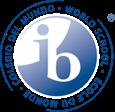

Middle School
45 rue Cortambert 75116 Paris, France

High School and Main Reception

6 rue Beethoven 75016 Paris, France
Tel: 01 42 24 09 54
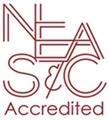
MYP Curriculum Guide 2022 23 20




